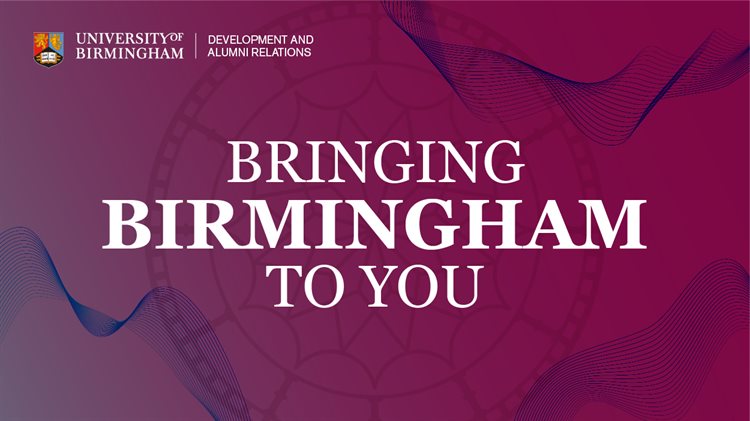Bringing Birmingham to You: Impact of COVID-19 on Education
- Location
- Online - a link will be sent to you before the event
- Dates
- Thursday 7 October 2021 (13:00-14:00)

Bringing Birmingham to You: Impact of COVID-19 on Education
Thursday 7 October
Online via Zoom
13.00-14.00 BST | 17.00-18.00 GST | 21.00-22.00 HKT
The disruptive impact of the COVID-19 pandemic on education reached across all boundaries to affect children, teachers, parents and carers. Learning development, socialising and assessments have all been interrupted, impacting students at all levels and raising concerns about mental health, future prospects and worsening inequalities.
Join Professors Colin Diamond, Julie Allan, Karen Guldberg and doctoral researcher Bethan Morris-Tran for a discussion on education and the lasting impact of COVID-19, and your opportunity to to pose your questions to the experts. Let us know what you would like the panel to discuss during the event by sending your questions via email in advance of the discussion. Questions will also be welcome during the webinar.
No prior knowledge of the subject is necessary.
As there are limited spaces available for this webinar, register early to avoid disappointment.
About the panellists:
Colin Diamond is Professor of Education Leadership, and has worked in the field of educational leadership for many years in England. He has been a Head of Faculty, Associate Headteacher, Local Education Authority Adviser, Assistant Director and Director of Education/Children’s Services. He led improvements in two local authorities, taking them from government intervention to strong performance. He has also worked for the Department for Education in England as Head of Education Advisers for the Academies and Free Schools Programme. He was Deputy Education Commissioner in Birmingham and he was also an OfSTED inspector. He was an associate lecturer at three universities before taking the chair of education leadership at Birmingham.
Julie Allan is Professor of Equity and Inclusion and was formerly the Head of the School of Education. Her work encompasses inclusive education, disability studies and children’s rights and is both empirical and theoretical. She has a particular interest in educational theory and the insights offered through poststructural and social capital analyses. Julie has been advisor to the Scottish Parliament, the Welsh Assembly and the Dutch and Queensland Governments and has worked extensively with the Council of Europe.
Karen Guldberg is Professor in Autism Studies, Director of the Autism Centre for Education and Research (ACER) and Head of the Department of Disability, Inclusion and Special Needs (DISN) at the School of Education. Karen’s research and teaching focuses on autism studies in education, and on inclusive practice in education and provision. Her research has involved working in partnership with schools, practitioners and parents. She led the development of the Autism Education Trust (AET) partnership school-based training as well as the adaptation of this to Early Years. Over 270,000 educators have now completed this professional development programme. Karen’s most recent book is Developing Excellence in Autism Practice: Making a Difference in Education. The book offers fresh insights and new ways of thinking that bring together global pedagogic practice, research, policy, and the insider perspective. Karen has published a range of peer-reviewed studies on the need for new methodologies in the field, on autism pedagogy and technology enhanced learning for autistic pupils.
Bethan Morris-Tran is a doctoral researcher and her scholarship is funded by the YTL Foundation. Her project is 'Transforming Education, Transforming Lives: Learning Through the COVID-19 Pandemic', which aims to explore the experiences of primary and secondary school students and teachers during the pandemic. Particular areas of focus are digital access, government and community support, home environment and mental health. Bethan and the team hope this work will provide insights into the nuances of individual’s educational experiences, and provide invaluable help in exploring the vast number of challenges facing individuals and communities, and what our route to recovery should entail.